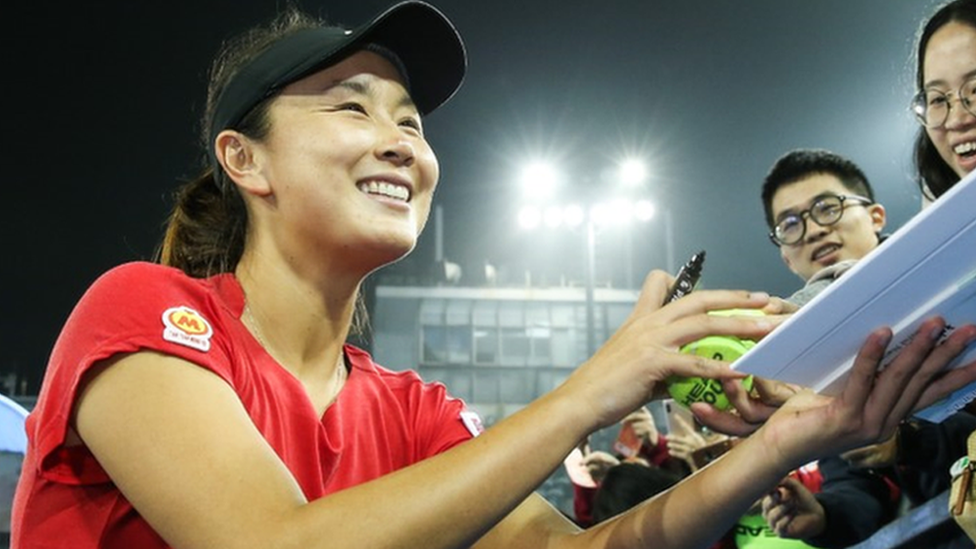Winter Olympics 2022: Testing times in the Chongli mountains
- Published
Athletes get ready for the 2022 Winter Olympics near Beijing
China's Olympic preparations have been marred by coronavirus, human rights abuse allegations, and former Chinese Olympian and tennis star Peng Shuai accusing a senior government official of sexual assault.
Despite this, Beijing is pushing ahead with test events, hoping that sport will eventually come to the forefront and deliver a memorable Games. It will be a challenge.

When you leave a wintery Beijing city and head north by high-speed train you're soon tearing through an arid landscape.
It doesn't rain in winter it only snows and, despite the cold, it doesn't snow very much.
This is where the Winter Olympics will be held in two months.
How cold can it be? The wind is the killer.
We arrive in Chongli on a day which is -12C with icy winds howling down off the Mongolian Plateau. Our camera operator gets blisters on her fingers from filming in this temperature. Our radio recorder freezes up and won't work.
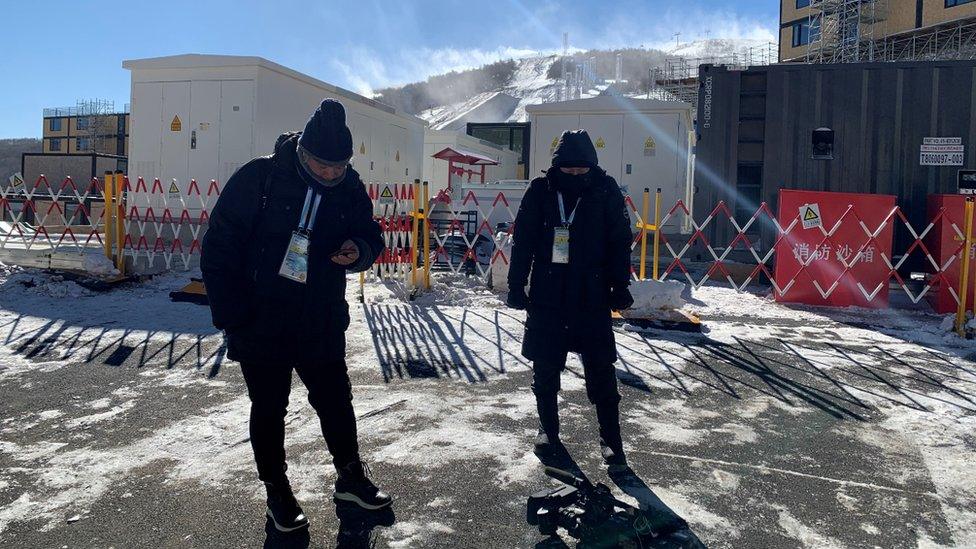
It was -12C in Chongli on the day we arrived
How arid? There has been extensive tree planting around the Olympic sites, the latest effort in a campaign over decades to counter deforestation here over centuries gone by.
In terms of the snow, there is only one way to guarantee there will be enough of it for the Games: make it artificially in enormous quantities.
The machines seem to run constantly. You can see them, operating by the dozen, running right up the sides of mountains spraying out huge fans of white powder.
When it comes to the sport, this isn't necessarily a problem.
Britain's Charlotte Bankes says artificial snow can actually make for quick, dynamic runs in her event, the snowboard-cross.
"The speed and everything is going to be key," she says, "and that's the difficult bit so it's going to be challenging for sure to try and get the most out of the track anyway."
She is here for a world cup which is also serving as a test event for the Olympics.
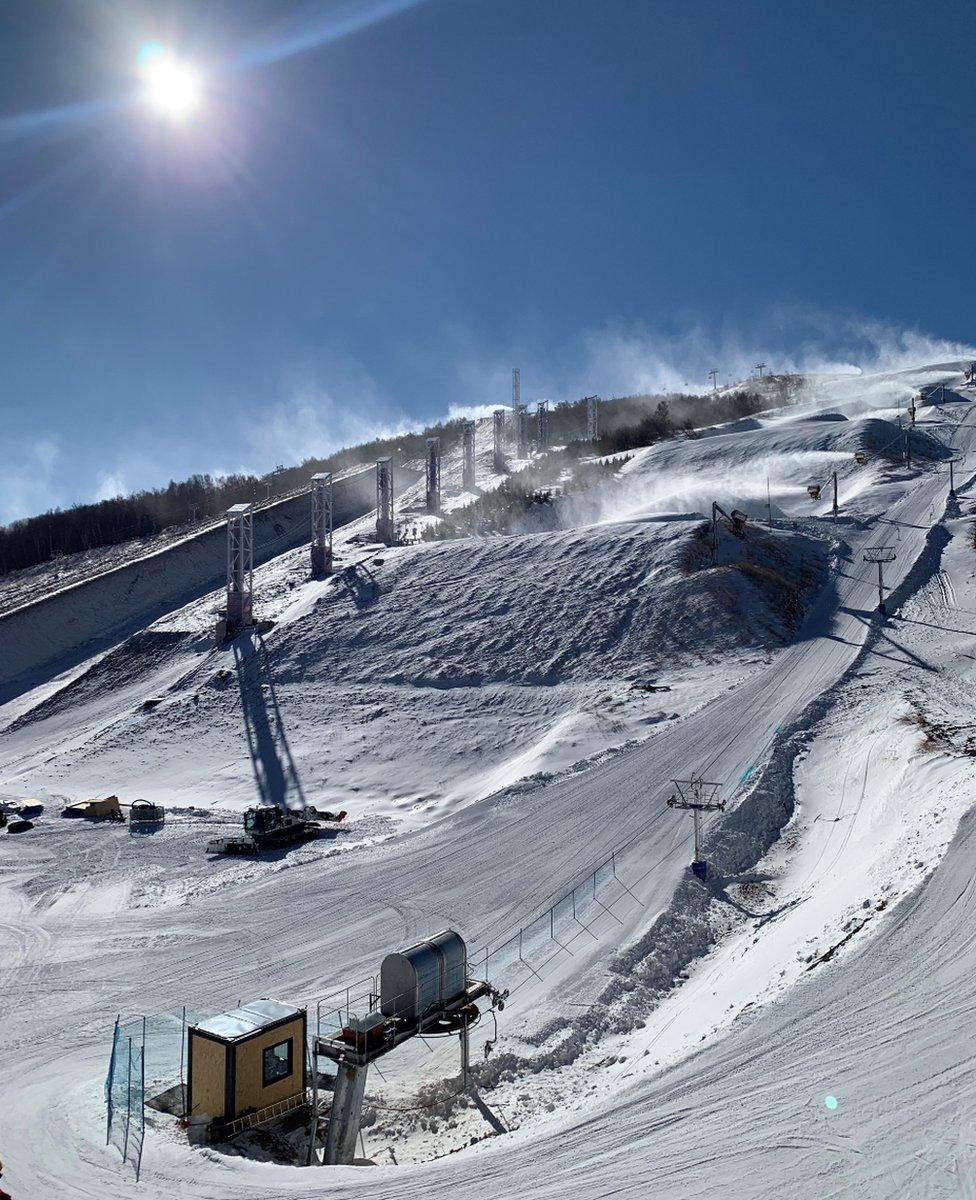
Artificial snow is being used to ensure there is enough of it for the Games
Although we are at the same place, we can only speak to her via video link. There are a series of bubbles which don't connect: journalists in one, athletes and their coaches in another.
This is enforced strictly and is part of seeing if these mechanisms work so that there can be spectators at the Games in February. Organisers say they're still planning for this but it seems they have not yet decided how. The Olympics is very close and there has still been no announcement regarding ticket sales.
A worst case scenario would be to bus in crowds of students and Communist Party members who could even quarantine if need be.
The spanner in the works has been a fresh resurgence of the Delta Covid variant in a country still pursuing a complete elimination strategy with every outbreak.
The entire Olympic area around Chongli is now closed off to the outside world.
We are only allowed in because we have accreditation but even that is sometimes not enough.
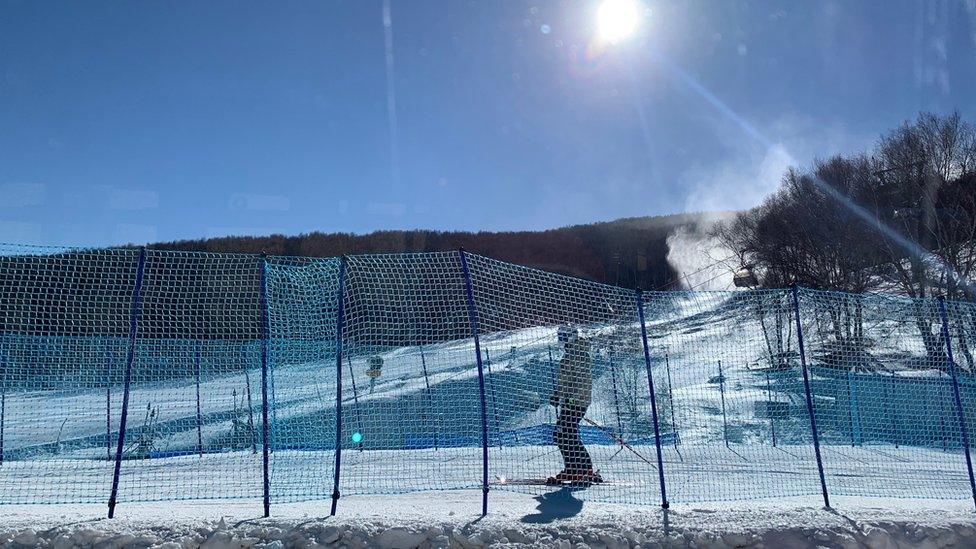
The Olympic area around Chongli is closed to the outside world
We approach a boom gate on foot in order to enter our hotel but a police officer won't let any of the reporters through. He has been told that only journalists on board a special media bus can pass.
Specific buses are used to maintain the corridors which connect one part of a bubble to another.
After a series of phone calls an order comes through from his superiors to let us through.
It's only by having such separation between categories of people that the athletes can be allowed into China to compete without having to quarantine.
Britain's Ollie Davies, who's here for the Ski-cross, tells us that they arrived on a charter flight and were able to head straight out to train the next day.
Though they've been double-vaccinated he says there has been a lot of Covid testing.
"We had to do PCR tests on arrival and then again on arrival at the hotel and then every day from there onwards. But, if that's what we have to do to not quarantine, then so be it," he says.
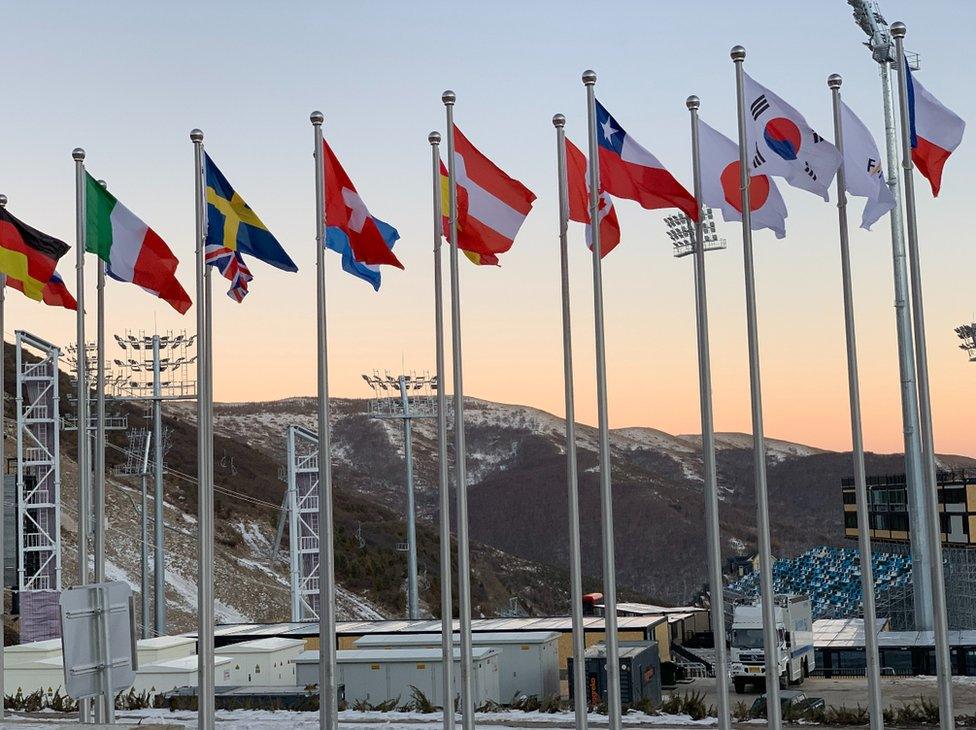
Strict Covid measures are in place for global athletes
Apart from helping the athletes to prepare, these test events are also a big test run for the local Olympic Committee.
There has already been one accident chalked up to human error when a Polish luger slammed into a gate which was left open on the track.
It's a learning process so this doesn't happen at the Olympics.
Despite the political and human rights heat being placed on Beijing, the volunteers, the staff and many ordinary Chinese citizens really want these Games to be a success.
Those we speak to are proud of their country, their city and their athletes.
They want the original ideals of the Olympics to shine through but there is still plenty of time for other diplomatic meltdowns to cast a shadow over Beijing before it becomes the first city to host both the summer and winter versions of the Games.
- Published15 November 2021
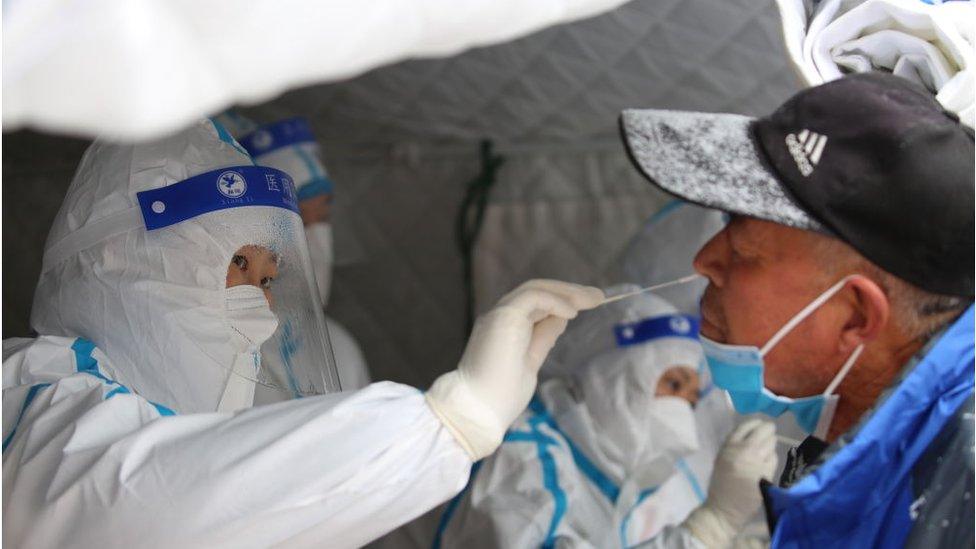
- Published20 December 2021
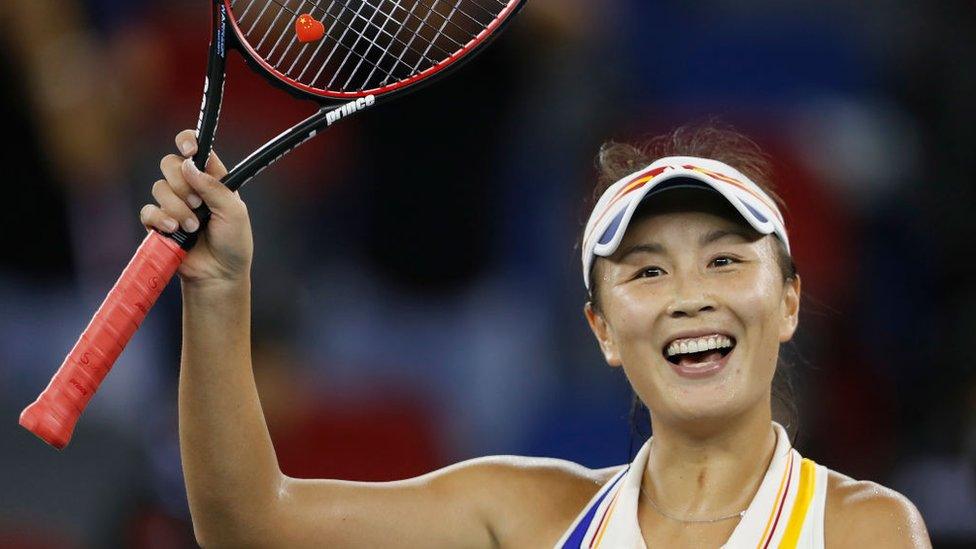
- Published8 February 2022
